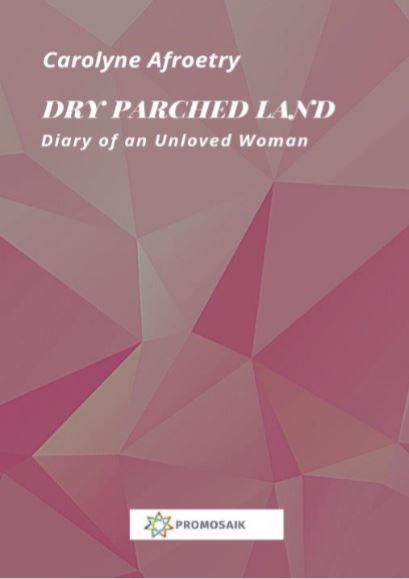Carolyne M. Acen (Afroetry) – Diary of an Unloved Woman

By Milena Rampoldi, ProMosaik, 28
August 2020. Here in the following my interview with the poet Carolyne M. Acen
(Afroetry). Carolyne is a Ugandan Spoken word artist, poet and activist.
She currently manages Echo minds Poets.
A group of 7 female poets dedicated to bringing women’s stories to the stage in
a theatrical production.
In 2017 she was
shortlisted for the Haiku Africa Competition and competed in the East Africa
Poetic Hour competition in Kisumu, Kenya in 2018.
Her poetry has
been published in literary magazines and blogs.
Her poetry is
female poetry, and the second part of the title says it all: Diary of an Unloved Woman
Biographic, ethnic, and at the same time universal.
Asked her a couple of questions about her poetry and
life. What I want to show with this book and the reason why we have decided to
publish and translate these poems is simple: poetry can support the struggle
for women rights, not just in Africa but everywhere in the world, in particular
in difficult times like this Corona age.
Why the title, Dry Parched Land?
Dry parched land embodies the story of unrequited
love, rejection and heartbreak.
I chose this title because it imaginatively describes
a relationship that won’t grow no matter the effort.
Imagine trying to plant flowers on land that is
scorched and bare.
How important is Poetry in Uganda and what function
does it have?
Poetry is very important in Uganda as a mode of
expression, and a voice of activism.
There are many poets in Uganda whose voices instigate
change, and also affect policies.
Poetry has the function of creating awareness,
educating and also fighting oppression.
Tell us about your poetry project and the network you
write with.
My poetry project is Echo minds Poets. A group of 7
female poets united to change the African woman’s narrative. We create poetry
with messages of elevation, empowerment, and our plight as women and also the
change we want to create. Then the poetry is dramatized on stage.
We had two shows last year. The first one was mostly
about empowerment, and the second one was about Mental Health.
We hope to use this project to educate, inspire and
create change.
What are the typically African aspects of your poetry?
Well…mostly identity, culture and history. I
love to apply imagery derived from my culture in poetry. Some of them are
manifested as parables.
How can Poetry promote Women rights in Uganda and
abroad?
Poetry as a language of expression and experience can
be used to tell our stories as women.
It encourages the marginalized to speak out, while
also acting as a voice of activism for women’s rights.
Poetry is a mirror of society.
By using poetry to share our stories as women in
Uganda, we are advocating for change and also empowering the oppressed women in
our societies.
The women who are afraid to speak out.
What are the main problems women have with men in
Uganda?
The main problems are mostly domestic violence, sexual
abuse in public and private spaces and also emotional abuse.
Uganda is mostly controlled by patriarchal
society. The influence is deeply felt in different spheres. Within work
spaces, and even positions of influence.
Some women especially in the villages are still
treated as property, and their voices are muffled.
They are subjected to all forms of abuse and usually
suffer silently.


